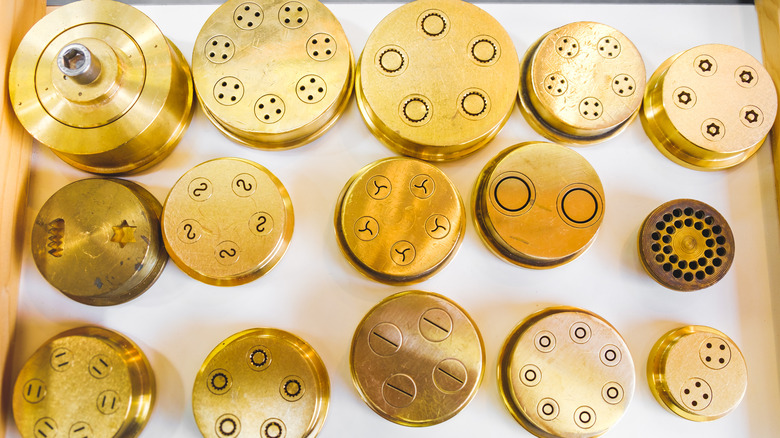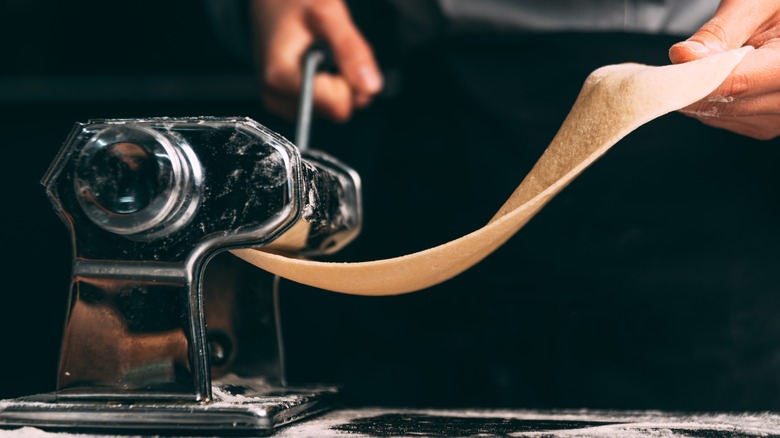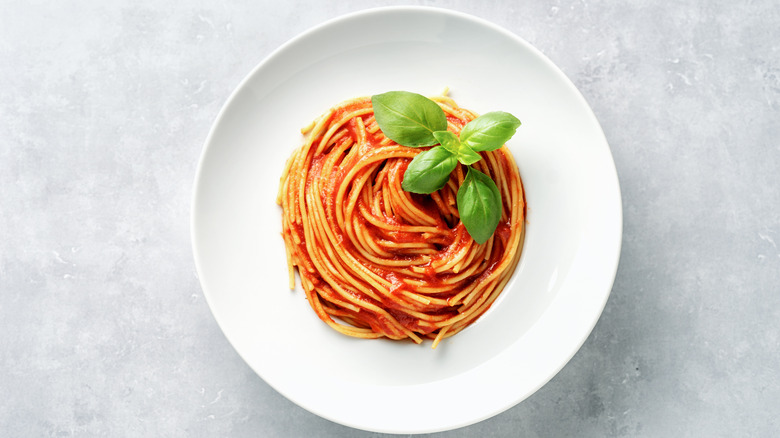What Bronze Cut Pasta Actually Is
You may think one kind of dried pasta is the same as another, but you'd be wrong. There's so much to know about the world of pasta, and it can make a significant difference in the yum factor of the meals you put on your table. There's a special kind of pasta that celebrity chefs like Giada DeLaurentiis and Gordon Ramsay always use — and with good reason. It's called bronze-cut pasta, and it's what you should be using, too.
If you have a nonna from Italy, she will remember when the only dies used to make pasta were made of bronze. Today, many pasta brands are extruded (pressed) through a pasta maker made with dies coated in Teflon to keep the pasta from sticking to the machine. Sounds good in theory, but bronze-cut pasta is a more delicious option that can seriously elevate the flavor of your favorite dish, whether you prefer a tasty marinara or a spicy puttanesca.
The difference is in the die
Bronze-cut pasta is made with a machine that uses bronze dies. The bronze discs are attached to where the pasta comes out of the machine and are micro-engraved, giving them a slightly rough interior surface. This surface creates a coarseness on the outside of the macaroni as it's being pushed out of the machine, giving bronze-cut pasta its unique texture.
If you tasted a cooked pasta made with a bronze-cut die and one made with a Teflon die, you wouldn't be able to tell the difference. However, the advantage of using the machine fitted with a bronze-cut die will be very noticeable once you add sauce. The rough surface of the bronze die creates a texture that's just waiting for the sauce to cling to it.
If you choose to make your own pasta, make sure you find a pasta machine with bronze dies, not Teflon. Teflon may sound like a good idea for easy cleanup, but it does not create the same textured surface as a bronze die.
Making the sauce stick
Buying bronze-cut pasta isn't the only way you can help the sauce cling to the noodle. Lidia Bastianich from NPR's "Lidia's Kitchen" says it's critical never to add oil to the pasta water. The oil makes the pasta slippery, and the tasty sauce will slide right off. She also advises against rinsing your pasta after it's been drained, as doing so reduces the starchiness of the noodle. Starch makes the pasta sticky and allows the sauce to adhere better, making for a more delicious final product (per Wisconsin Public Radio).
When shopping for pasta, look for words such as "bronze cut," "bronze extruded," or "al Bronzo" on the package. Bronze-cut pasta may cost a little more than other varieties of dried pasta, such as store brands, but you can still get a deal. Per Forbes, Barilla released an al Bronzo pasta in late 2022, and stores like Aldi and Trader Joe's generally carry it, too.


